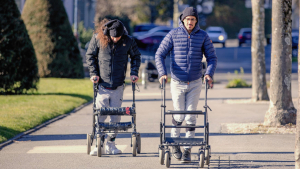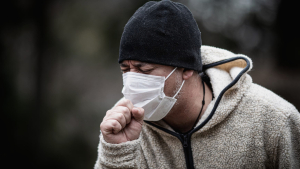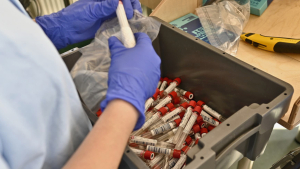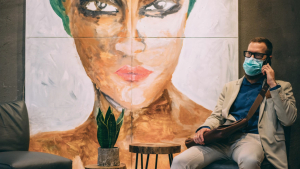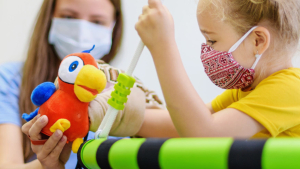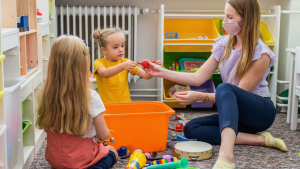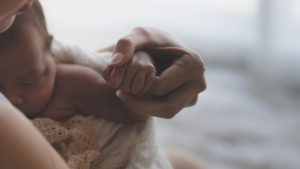Laura and Max deliberately waited until Laura was 16. Max was already 18 - and they were not at all "together". They got to know each other, were likeable and talked about sex. Together they prepared the moment and took care of contraception. How did it feel for the first time? Nice, both say. Max is convinced: "The fact that it was a nice experience was mainly due to open communication." Later they became a couple and are now happy that they tackled it in their own way.
The story of Laura and Max, which are actually called differently, is not necessarily typical. However, it shows what good conditions are for the first time: well -founded knowledge, sufficient maturity and open conversations. Statistically speaking, Laura was still quite young at the age of 16. The Federal Center for Health Education (BZGA) has regularly carried out a representative study on the sexuality of young people since 1980. According to the last survey in 2019, only a third of the 16-year-olds have had sexual intercourse-and therefore less than in past surveys. At the age of 17 it was about two thirds and around 90 percent at the age of 22. Every third was waiting at least until majority.
The age does not necessarily say anything about when the young people are actually ready, explains the gynecologist Erika Ober from Michelstadt in the Odenwald: "It depends on the hormones." A Dutch meta -analysis examined how puberty affects sex life. Result: The earlier the children came to puberty, the earlier and risky their sexual activities.
In the BZGA study, a little more than half of the young people stated that they wanted to wait longer to find the right partner. Others still think they are too young or are too shy to take the relevant steps. This shows that many think about the first time.
Series "The Discovery of Lust"
Doctor games in kindergarten, the first sex at the earliest at the earliest: so many parents imagine their children's love life. But in fact, the desire for your own body begins. In the following articles, what adults should know about sexual development and how they can talk to their children about it.
However, that doesn't have to be that way. Nora, her name has also been changed, was almost 16 years old when her friend then persuaded her. "It was as unromantic as you can imagine," she recalls. “In retrospect, I regret that I should have been waiting longer. Afterwards I cried. ”The many small hints of her more experienced friend had believed that she would be ready - she looks back three years later and knows better.
Pressure from outside and also of themselves often plays a role when young people get involved in sexual intercourse too early. Friends in particular influence the decision: If many of them have sex early on, this can become a norm within the group. This creates expectations, says the doctor of psychologist and psychotherapist Sabine Radestock, who advises young people and their families in her Mannheim practice. "Some then think: I'm already 16, now I have to get behind me for the first time."
How strongly the group form has a different effect is individually different. In 2016, a research group examined how adolescents can be influenced in their attitudes towards sexuality by peers. The 300 boys and girls, almost 13 years old, were confronted with fictional scenarios: Would they be ready for risky behavior, for example for sex with an unknown student? The researchers then simulated a chat room. They believed that the participants believed that they would speak there with the same age - and they expressed a little more risky than the respondents themselves.
Almost 80 percent of young people also made statements in the chat that suggested increased risk to risk. Conversely, a fifth was immune to the influence of the group. Incidentally, gender seems to play a role: boys were easier to steer from peers when it comes to sex.
Of course, this situation is quite theoretical. It is unclear whether the young people would actually act as they wrote it in the chat. On the other hand, acquaintances in real life probably have more influence than strangers in a test laboratory. In any case, the study suggests that many, but not all young people can be influenced by the peers.
Conversely, this means that an understanding and open circle of friends can also have a positive effect on behavior. Finn had this experience; his name has also been changed. The 16–year-old started exchanging ideas with his friends at the age of about twelve - at first with a lot of giggles, later in more serious conversations. Finn had his first time at the age of 14. He didn't feel any pressure, but he still couldn't really enjoy the moment. "It felt rather weird," says Finn. "With my later girlfriend it was different then, because we could talk about what we like.«
Contraception: for most people a matter of course
Most young people are already thinking about contraception before getting involved in the first sexual intercourse. Finn, Nora, Laura and Max were all prepared. In the recent survey of the Federal Center for Health Education, less than ten percent stated that they had not prevented the first time - for example because it spontaneously came about or because they assumed that nothing would happen. According to their own statements, more than one in ten (eleven percent) had not controlled; Among the girls only half as many (five percent).
The means of choice is the condom the first time. In the course of a partnership, many prefer the pill. "The girls who come to me in practice are usually very well informed about contraceptive options," says the gynecologist Erika Ober. "Of course there are also false cocks, but I can correct that." With questions, the girls or young women come to her, especially when there are problems, like pain during sexual intercourse. Because even with the right partner and the right partner and the appropriate preparation, everything does not always work as the couples imagine. There can be many reasons, such as vaginism or a foreskin narrowing.
Advice online and on the phone
Children and adolescents can find an open ear for worries and needs of all kinds free of charge and anonymously on the number for grief by phone at 116 111 or in telephone counseling at 0800 1110 333. Further offers on the Internet:
More and more young people are informing about sexuality on the Internet. In 2001, only about three percent of girls and ten percent of the boys stated that they were looking for it online. 13 years later it was 39 percent of girls and 50 percent of the boys. The sources of information are diverse: websites of classic media, health and educational portals, guides and forums, Wikipedia, social media and apps.
There are also pornography portals. Here young people can take a detailed look at possible practices - which can be completely harmless. But surfing on such sides also carries risks, especially the sight of violence and child pornography. And not only that: the sometimes unrealistic representations fuel excessive expectations, says behavioral therapist Sabine Radestock. »This can become a kind of arousal addiction. The films have to be increasingly crazy and exciting, and the reality cannot keep up. "
The parents should offer to talk but not press the issue.
Parents have the task of warning of possible dangers. Such conversations are not always easy and sometimes simply not desirable. While Finn can talk about everything calmly with his parents and is very grateful for it, Nora would be more wrong. Although she believes that her parents would make an effort, but she also feels so well informed and wants to save herself and the parents an unpleasant conversation.
In a gynecologist's practice, it is also not always easy, reports Erika Ober: »Girls often come with her mothers. If I realize that you do not want to talk about sexual intercourse before you, I prefer to do it with the girls alone at another time. «
The psychologist and family consultant Sabine Radestock sees it positively that many parents are increasingly dealing with the topic more and more openly. "And if that doesn't work well, there are very good offers, for example from the Federal Center for Health Education." What parents should avoid: to scare their children.
The BZGA proposes careful discussions on the part of the parents to contraception and sexually transmitted diseases as a sensible measure. However, you should not impose the talks, but should respect the privacy of young people. Laura's mother, for example, repeatedly warned of an unwanted pregnancy - Laura had long since taken care of the contraception. She would have liked to do without the constant sermons.
The message: Safe sex can be fantastic as well.
An aspect that is often forgotten by parents and in school education is the desire to sex. It is an important part of experience for the young people. An investigation from 2022 suggests, for example, to emphasize the beautiful sides of Safer sex when investigating HIV and venereal diseases, for example how erotic it can be to use condoms. Safe sex can also be great, that is the message.
The most important thing that parents can do for their children is more general in nature, says psychologist Sabine Radestock: "Children have to grow up in the knowledge that they can ask questions." Even if the parents do not agree with everything their children do , you should give you self -confidence. This works by giving them the feeling that they are accepted as they are. Because they also give them the strength to say: "I am unsure, so I would like to wait."
Inadequate timing or a fake partner
For many, the first time is a nice experience. For some, however. In retrospect, you will find that it was too early for you. Surveys of more than 6,000 US students over 30 years showed that more than half found the time correct. But more than a third would have liked to wait a bit afterwards, especially women. Anyone who felt under pressure evaluated the experience more negatively. An age gap of no more than two years was cheap. Whether there was a relationship and how long did not matter.
However, a representative German study found a connection with the nature of the relationship. If the girl was hardly or not at all familiar with the partner, only 26 percent found the first sex to be "something nice". If it was a solid friendship or a good acquaintance, it was 63 percent. There was no such correlation among the male respondents. In general, only a few boys found the first time uncomfortable – among the female respondents, on the other hand, it was more than one in five.
For the first time pushed or forced
In a study by the 2019 Harvard Medical School, 6.5 percent of women under 45 report that they were forced or verbally under pressure during their first sexual intercourse. More than every other of them were held by force, around every fourth physically injured, and just as many violence was threatened. The figures come from a representative national survey among around 13,000 Americans.
Women who felt pushed for sex or forced were 15 years old and the men involved were significantly older at an average of 27 years. Women who had decided freely were on average 17 and their male partners for 21 years. The constellation of young girls and much older man is therefore an alarm sign.
Sexual violence during the first intercourse is a risk factor for health, writes the group led by physician Laura Hawks. The affected women later suffered, for example, more often from inflammation in the abdomen and from endometriosis, a chronic disease of the uterus. The mechanism behind this is unclear.








